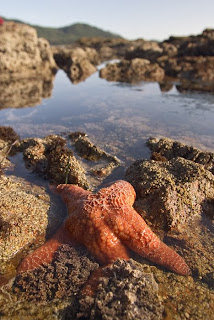One day the Buddha was sitting in the wood with thirty or forty monks. They had an excellent lunch and they were enjoying the company of each other. There was a farmer passing by and the farmer was very unhappy. He asked the Buddha and the monks whether they had seen his cows passing by.
The Buddha said they had not seen any cows passing by. The farmer said, "Monks, I'm so unhappy. I have twelve cows and I don't know why they all ran away. I have also a few acres of a sesame seed plantation and the insects have eaten up everything. I suffer so much I think I am going to kill myself."
The Buddha said, "My friend, we have not seen any cows passing by here. You might like to look for them in the other direction."
So the farmer thanked him and ran away, and the Buddha turned to his monks and said, "My dear friends, you are the happiest people in the world. You don't have any cows to lose. If you have too many cows to take care of, you will be very busy."
2008年3月31日星期一
No Cow to Lose
另一種先進
All I Really Need to Know I Learned in Kindergarten...?
某歐資銀行為響應Earth Hour,除了在指定時間把全球辦公室的燈都關上之外,還鼓勵員工在28號下班前把電腦的monitor turn off。這很好。雖然離開前把電器關上是幼稚園小學生都知道的事情,但總比什麼都不做好。
難道真的是"All I Really Need to Know I Learned in Kindergarten"?
2008年3月30日星期日
香港什麼都有 - 除了Earth Hour
With millions of people around the world sharing this experience, I feel a rising hope for the future. It's easy to get down when watching endless news stories about melting ice caps and hungry polar bears, but this could be the moment when we start to turn the corner, and begin to make good news happen. 
At 8:50pm the electricity consumption in the city dropped by 264 Megawatts, which is approximately 175,000 households. And much of the city remains dark.
This year the only participating cities in South East Asia are Manila and Bangkok. 希望明年香港會榜上有名.
圖為CN Tower, light out, in Toronto, Canada, on Earth Hour Live.
2008年3月28日星期五
澳洲袋鼠和中國奶粉

有同事剛從澳洲回來。「乾燥嗎?」我問。「會嗎?」原來他一點都不知道澳洲正面對著千年一遇的旱災。Rainfall in South Australia was the lowest since 1900, while temperatures in the country were the highest since the 1950s. Many regions were experiencing their fifth year of drought, and crops failed while livestock died. In Sydney, householders were fined A$220 (£100) if they were caught watering gardens, Perth’s drinking water became saline (The Guardian)
而同事跟我都不知道的是,中國大陸的家長們正在為澳洲的旱災而挨貴奶粉,因為80%的原料來自澳洲和紐西蘭,它們的生產/出口都受影響了。(China Daily) 蝴蝶效應,信焉?
圖為一袋鼠。Dead, in New South Wales, Australia.
2008年3月26日星期三
Bottle Down!
2008年3月18日星期二
在乎
2008年3月12日星期三
"Business as Usual"

Article: The Guardian by David Suzuki'...in 1992, a remarkable document called World Scientists' Warning to Humanity was signed by more than 1,500 senior scientists, including more than half of all Nobel prizewinners alive at that time.
Here is some of what the document said: "Human beings and the natural world are on a collision course. Human activities inflict harsh and often irreversible damage on the environment and critical resources. If not checked, many of our current practices put at serious risk the future we wish for human society . . . and may so alter the living world that it will be unable to sustain life in the manner that we know. Fundamental changes are urgent if we are to avoid the collision our present course will bring about."
The document goes on to list the critical areas of the atmosphere, water resources, oceans, soil, forests, species extinction, and overpopulation. Then the words grow even more urgent: "No more than one or a few decades remain before the chance to avert the threats we now confront will be lost and the prospects for humanity immeasurably diminished. . .
A great change in our stewardship of the Earth and life on it is required if vast human misery is to be avoided and our global home on this planet is not to be irretrievably mutilated."
This is a frightening document; eminent scientists do not often sign such a strongly worded missive. But if the Scientists' Warning is frightening, the response of the media in North America was terrifying - there was no response...
Instead we hear excuses to ignore the warnings: it will ruin the economy; technology will solve the problem; it is not fair when other countries are not included; there are other priorities demanding immediate attention, etc. And so we turn our backs on the very strategy that got us to where we are.
Business as usual
For decades, scientists in the US had pointed out that New Orleans was a disaster waiting to happen. The city lies in an area that is prone to annual hurricanes, half the city is below sea level, and a force 5 hurricane was bound to hit the city, so drastic measures had to be implemented immediately to avoid disaster. All the while, politicians and businesspeople countered that it would be economically ruinous to take precautionary action, and carried on with business as usual - no doubt crossing their fingers that nothing would happen during their tenure. We all know what did happen when Hurricane Katrina hit the city in 2005 and confirmed all the predictions scientists had made.
The need to look ahead and manoeuvre to exploit opportunities and avoid threats continues to be just as critical in modern society. The challenge is to find why we are rejecting foresight, why we can't see what the real threats are that confront us.'
2008年3月10日星期一
「垃圾」的誘惑
家裏的電腦差點兒也去了。
買了4、5年,是蠻舊了,可是還可以修。不是沒有掙扎。但是很多新產品才有的功能對我來說根本就沒用,花錢買一件沒用的東西兼製造電子垃圾?還是算了。
最近手電筒(2年多)也出問題了。 還可以修嗎?或者應該說... 還可以抵擋誘惑嗎?
+of+IMG_1413_1.JPG)

